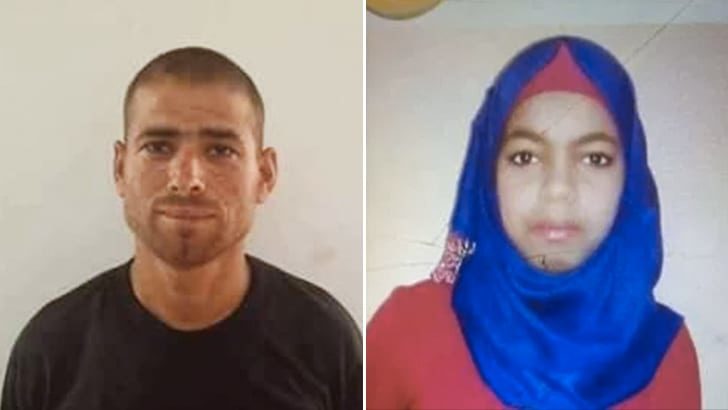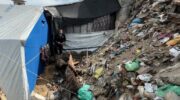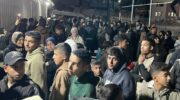Israeli soldiers shot and killed Fadi Najjar, 25, as he protested the Israeli blockade in Gaza, and killed Nawf Enfei’at, 16, in the West Bank.
The Palestinian Center for Human Rights documents crimes committed in the occupied Palestinian territories in weekly reports. We summarize their reports and stories from other news agencies with the goal of informing Americans of the ongoing violence that Palestinian families face each day under Israel’s occupation of their ancestral lands. The Israeli government receives $3 billion per year in direct military aid from U.S. taxpayers.
June 1, 2017 – June 7, 2017
West Bank
- The Israeli military continued its 50-year long military occupation of Palestinian land in the West Bank, under which the 2.8 million Palestinians living there are subjected to a different set of laws and treatment than Jewish settlers (numbering 588,000) are.
- Israeli soldiers shot 16-year-old Palestinian girl Nawf Enfei’at and prevented her family from visiting her after she was severely injured. She died of her wounds the following day.
- Israeli forces injured 12 civilians, including 2 children during demonstrations. Some of the wounded were hit with live bullets, including a child.
- Israeli soldiers severely beat a Palestinian man at a checkpoint and the man had to be hospitalized for his injuries.
- Israeli forces attacked the weekly demonstrations against Israeli’s Separation Wall in Bil’in and Nil’in villages, dispersing the protesters with tear gas and live bullets.
- Israeli forces carried out 40 invasions of Palestinian communities, raiding and searching homes, and arrested 33 civilians, 7 of them children.
- Jewish settlers seized Palestinian land that belonged to several families and established an outpost on it, preventing Palestinians from accessing the area. Over 500,000 Israelis now live in settlements that are considered illegal under international law.
- Jewish settlers slashed the tires of Palestinians’ cars and sprayed grafitti saying “Death to Arabs.”
- Israeli forces demolished five Palestinian coal production plants and confiscated hundreds of tons of wood.
- Israeli forces erected dozens of temporary checkpoints, restricting movement for even more Palestinians. (There are 27 permanent checkpoints and hundreds of physical roadblocks placed by Israeli forces. Palestinians are prohibited from using 41 roads totaling 700 kilometers in the West Bank; only Israelis can travel on them.)
Gaza Strip
- Israel continued its 10-year illegal land, sea, and air blockade of the Gaza Strip, strictly controlling the movement of all 2 million Palestinians living there.
- Israeli soldiers shot and killed 25-year-old father Fadi Najjar while he and others were protesting Israel’s bloackde on their own land in Gaza near the border fence.
- Israeli soldiers opened fire at dozens of Palestinians participating in demonstrations and hit seven of them with live bullets.
- Gaza continues to face an electricity crisis as a result of the blockade and repeated bombing of Gaza’s only power plant over the last decade. The plant was closed down in April after it ran out of fuel reserves. Many people only receiving electricity for a few hours a day and are forced to buy bottled water since they don’t have running water. The Health Ministry of Gaza says that a third of planned surgeries have been postponed.
- Israeli navy forces opened fire at fishing boats off the coast of the Gaza Strip most days.
- Israeli forces continued to prevent most Gazans from entering or exiting the Strip (via the Israeli-controlled Erez crossing).
- Israeli forces continued to prevent most exports from Gaza, allowing only some produce items, fish and furniture. There is just one Israeli-controlled crossing (Kerem Shalom) for the movement of goods. Israel’s strict limits continue to severely cripple Gaza’s economy. Israeli officials told the U.S. that their goal is to keep Gaza “on the brink of collapse” and “‘functioning at the lowest level possible consistent with avoiding a humanitarian crisis.”
Read the full PCHR report, which also contains daily summaries. The UN Office for the Coordination of Humanitarian Affairs (UN-OCHA) also publishes a “Protection of Civilians” report on the occupied Palestinian territories every two weeks. Their latest report covers May 16 to May 29.





